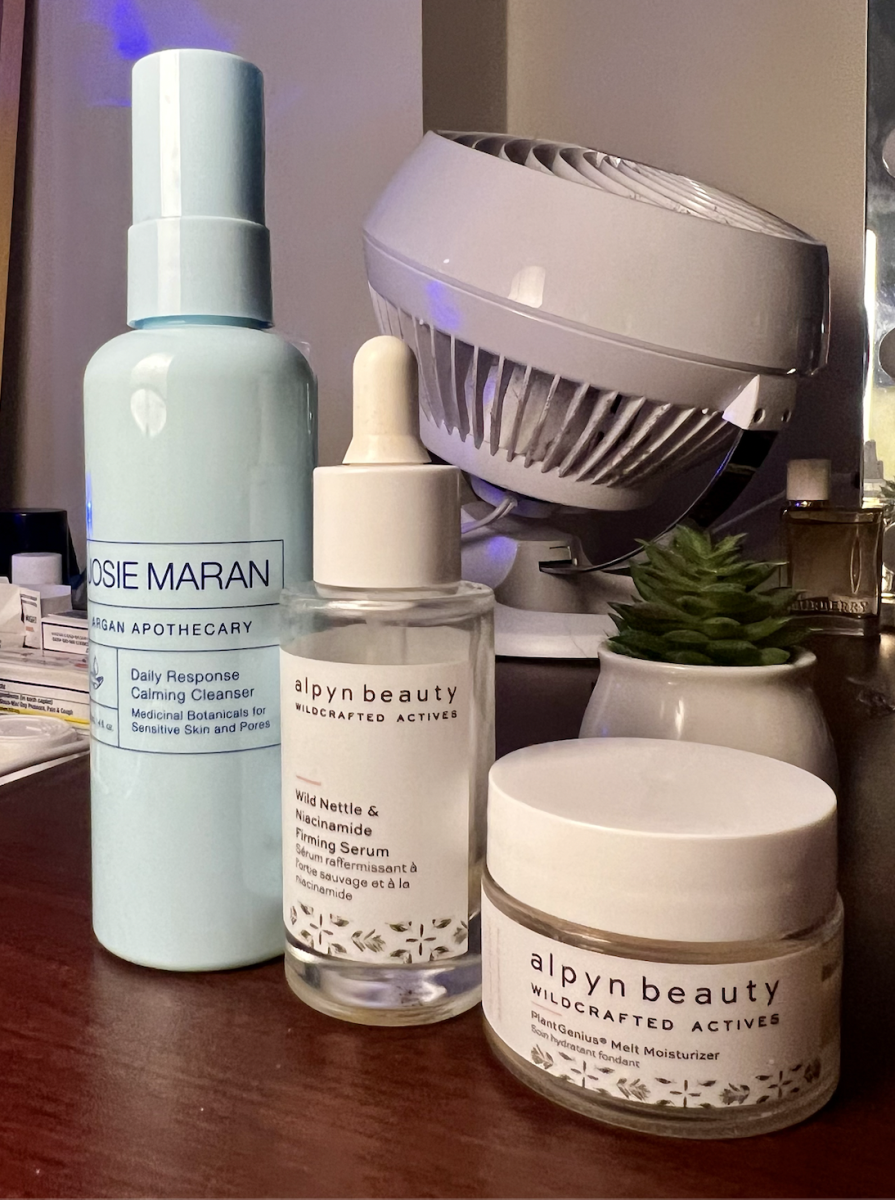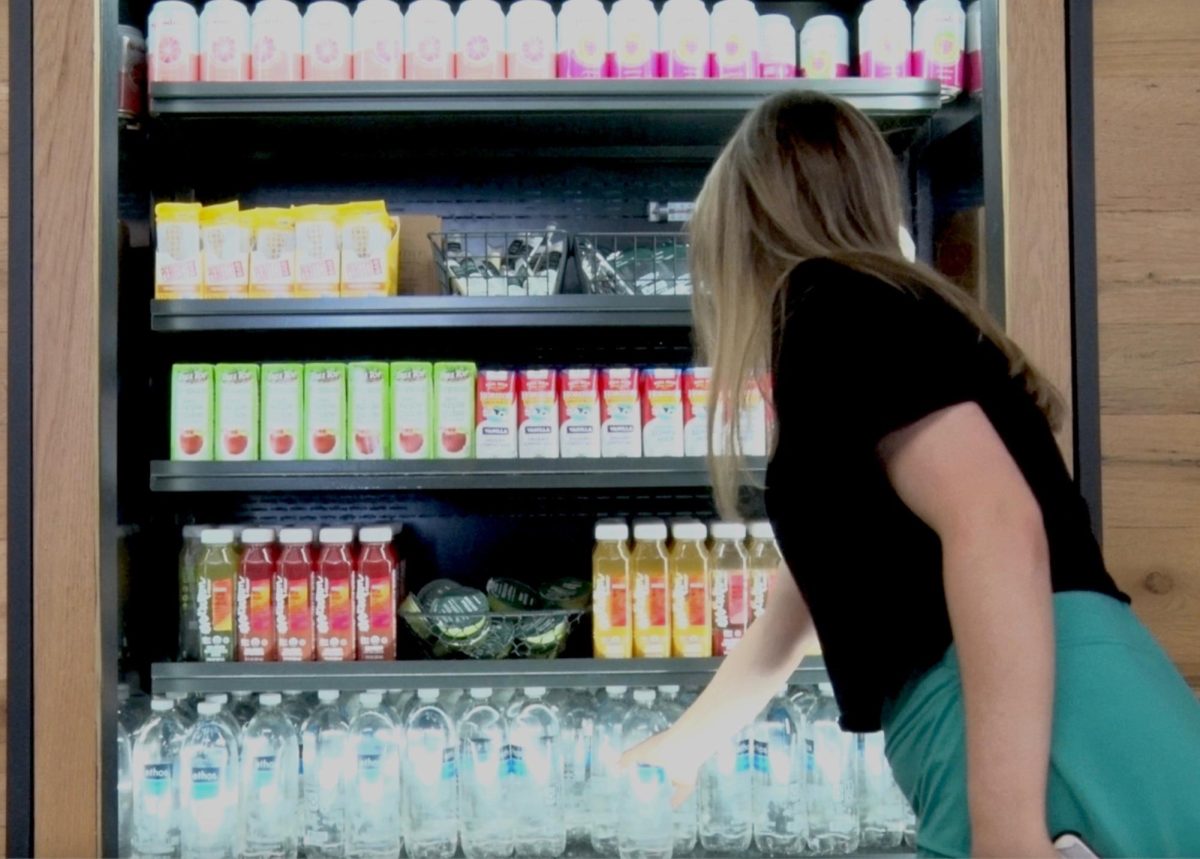
Look around on campus, see it in stores, flip through Vogue and browse Pinterest: the latest craze, juice cleanses, is everywhere.
A juice cleanse is a meal replacement program that consists of consuming a variety of fruit and vegetable juices over the course of several days.
Juice cleanses can be done at home, like the DIY style showcased on Pinterest, or through a high-end company program which usually includes approximately five juices for about $65 per day.
For juice companies, advertising and ease of product use is crucial. The key term “cleanse” or “detox” implies to consumers that there’s something “dirty” that needs to be removed. It gives the juice cleanse a beneficial, medical pretense that consumers leech on to.
Juice programs are constantly being shipped nationally and companies are only continuing to expand their transport capabilities. The task to take one on becomes as easy as simply opening the box or the glass jar.
Unfortunately for healthy bodies everywhere, the advertising works.
Numerous companies profit and expand off of this dangerous habit. Pick any company: BluePrint, Cooler Cleanse, Life Juice or Organic Avenue; all of them claim to guide consumers toward a healthier lifestyle tailored to the individual.
Other franchises are jumping on the bandwagon as well. Starbucks recently added juices and smoothies to its main menu in order to offer customers a healthy option suitable for a diet. Fruit and veggie juices are popping up everywhere.
Even the most fit, A-list celebrities can be seen toting around an expensive, glass bottle of their “day seven” juice.
Celebrities use their blogs and television interviews to boast about the benefits they see after a juice cleanse.
Salma Hayek, co-founder of Cooler Cleanse, claims she is “making a commitment to [her] health and hitting the reset button” by committing to a juice cleanse.
Hayek also brags that she “always loses weight.” Celebrities’ public approval of juice diets only increases the appeal for desperate bodies.
In a society that criticizes a mere one-pound gain, it is no wonder that juice cleanses continue to sell despite all the false claims consumers buy into.
Juicers take on cleanses in order to lose weight, and, while most juice cleanses claim to help consumers shed pounds fast, this is not entirely true.
An article from U.S. News breaks down the facts: a quick and easy way to lose water weight is to use up all the glycogen stored in the body.
By consuming a low-calorie diet, glycogen stores quickly vanish without being restored. A juice cleanse is low-calorie, dropping the body’s water weight in as little as three to four days. Voila! There goes 10 pounds.
Is this effort significant?
Not really.
The moment the juice cleanse is over and the body gets its hands on food consisting of actual substance, the weight reappears.
While most customers look to a juice cleanse for weight loss, others appreciate its “detoxifying effects.”
Juice cleanse companies advertise their products cleverly as quick fixes designed to reverse the damage from weekend-long calorie benders.
“Don’t ever stress about those little bacon cheeseburger attacks,” states the website of Nekter Juice Bar, a California company.
Companies look to profit from their clients’ capability to cheat occasionally, encouraging customers to turn to a juice cleanse to detox, then “retox.”
However there is no accurate, factual basis for this claim, and companies fail to specify which toxins their regimen is purported to eliminate.
The body already has toxin removers: the liver, the intestines and the kidney. Health Magazine notes that juice cleanses “don’t generally support optimal function of the body’s built-in ‘detox organs.’”
A juice cleanse isn’t going to detoxify the body; striving for this effect does more harm than good.
Consuming a pure, liquid diet is not the healthy way to lose weight, nor is it the most effective.
Common sense should tell consumers that the body needs more than blended up fruits and vegetables to function in a healthy manner.
Even though juice diets appear fast and easy, packaged in trendy Mason jars on Pinterest, don’t buy into it.
Healthy eating
Sometimes the best way to lose weight, and keep it off, is to incorporate healthy eating habits into your daily routine.
– Give yourself a variety of food options: Eating the same food for lunch might get boring and cause you to diverge from your diet.
– Create a schedule: Keeping meals and snacks at the same time each day will make your diet easier to follow.
– Small portions: When eating out, see if you can get that grilled chicken entree in a half portion size to stop yourself from overeating.














